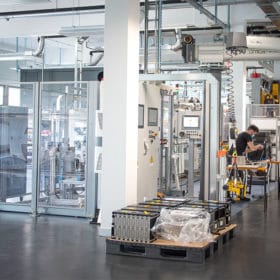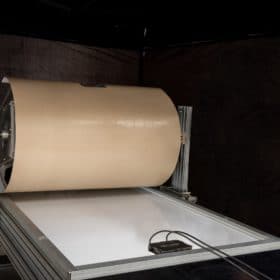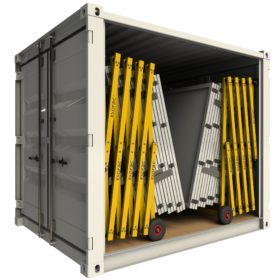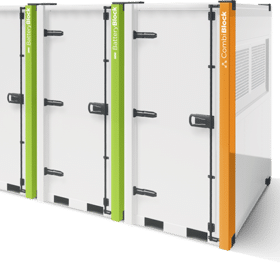Lithium-ion battery modules for energy intensive e-transport applications
Swiss manufacturer Leclanché will build the new battery modules at its manufacturing facility in Yverdon-Les-Bains. These products can be used for transport applications such as marine, commercial vehicle, and railway.
Demand, policies, investment key to green hydrogen development
Ruchi Gupta is a research fellow at the University of Geneva’s Institute for Environmental Sciences. She focuses on how flexibility options, such as sector coupling with hydrogen production, can support renewable energy integration and decarbonize a wide range of sectors.
A repair tape for cracked backsheets
Backsheet failures have plagued the industry, causing hefty financial burdens to many asset owners. DuPont has launched a product it says allows for easy repair of modules.
Perovskite stability, and the effects of defects
An international team of scientists fabricated perovskite solar cells which retained almost all of their initial 21% efficiency after 1,000 hours under continuous operation at their maximum power point. The researchers credit this performance to their discovery of an additive that served to ‘block’ ions that cause device degradation, and also hope their work will contribute to an improved understanding of the relationship between efficiency and stability in perovskite PV.
Construction begins on vertical solar project in the Alps
The 2.2 MW vertical solar plant, built on a dam wall at an altitude of almost 2,500 meters above the sea level, is expected to be commissioned within four months.
Containerized, retractable PV system for quick deployment
A Swiss start-up has created a containerized movable PV system that is designed to be easily relocated to allow the use of solar energy in locations where a fixed installation is not an option. The solution is based on a racking technology which can include two racks able to host up to 30 solar panels.
Future of cadmium telluride PV tech
In the third interview of a series, pv magazine spoke to Prof. Arvind Shah of École polytechnique fédérale de Lausanne and Associate Prof. Alessandro Romeo from the University of Verona about the challenges and opportunities of cadmium telluride (CdTe) PV tech. They said there is still potential to ramp up efficiency and cut costs, and claimed that the toxicity of cadmium should not be seen as a serious concern.
Switzerland allocates $521 million for solar rebates in 2021
The Swiss federal government has also decided to improve the bureaucratic procedures for the installation of solar PV systems.
‘Hydrogen as a universal climate solution might be a bit of false promise’
Hydrogen and hydrogen-based fuels will not be able to move forward fast enough to replace fossil fuels and tackle climate change, according to a German-Swiss research team that claims direct electrification alternatives are cheaper and easier to implement. The scientists cite too-high prices, short-term scarcity and long-term uncertainty, as the main reasons for their skepticism.
Leclanché unveils modular, plug-and-play solution for utility scale storage
The proposed solution is claimed to be able to mitigate potential fire risk, improve logistics and reduce costs. It consists of a series of interchangeable wide blocks that are said to be easily movable for simplified transportation.










